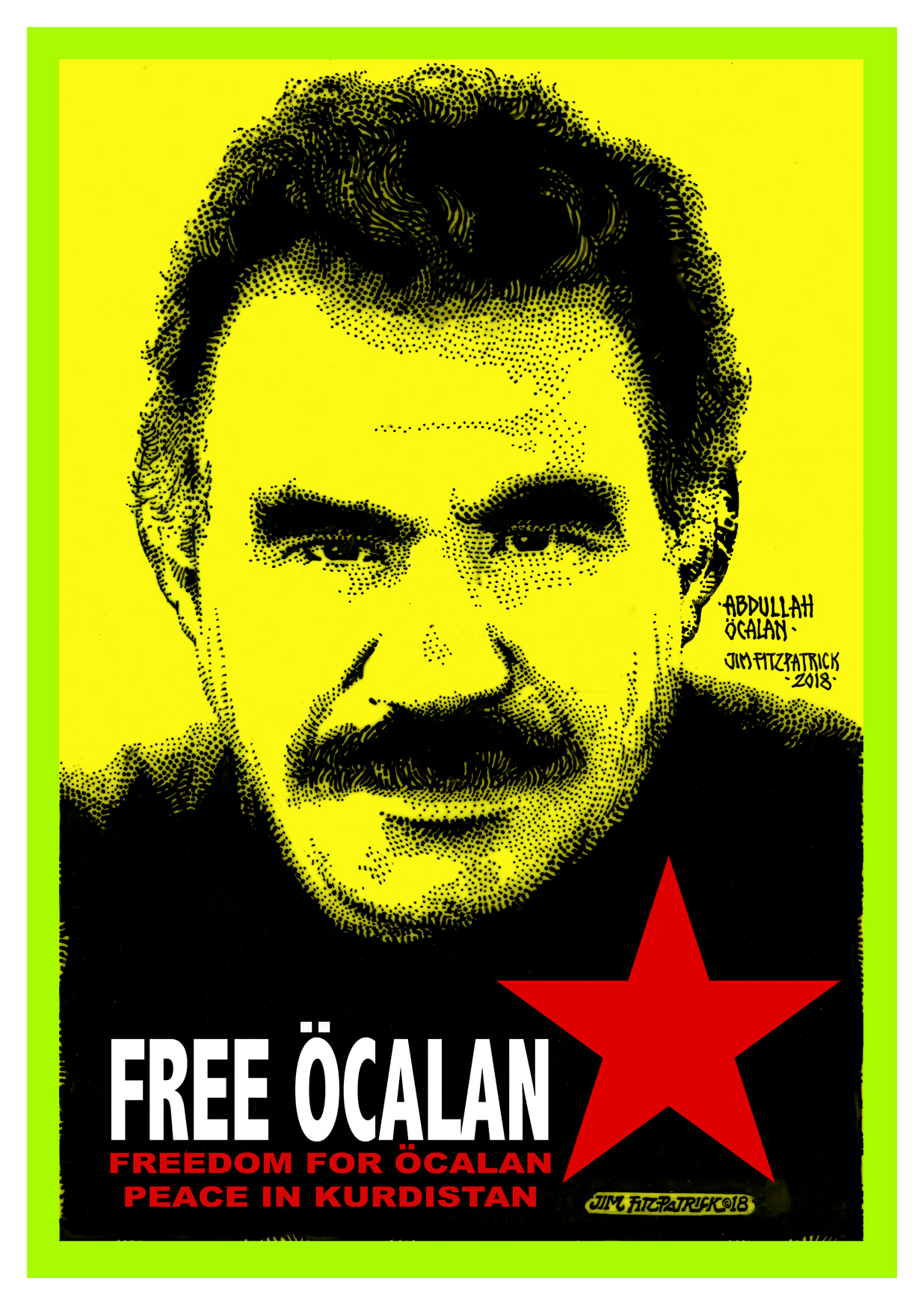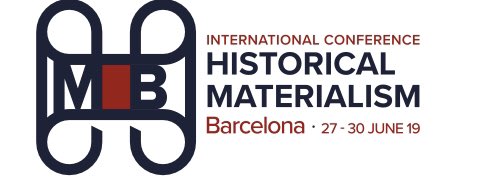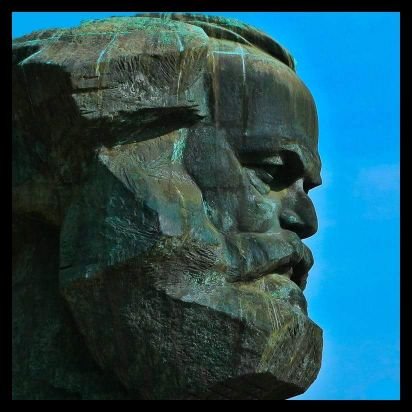«Karl Marx»: by Bertell Ollman and Kevin Anderson (eds)
 Reviewed by Hans G Despain
Reviewed by Hans G Despain
This collection of articles is an excellent source for contemporary Marxian social analysis. It is an anthology of thirty four articles addressing a wide range of topics. This collection of articles well illustrates the relevance and depth of Marxian analysis. It is an excellent reference. Its intended audience is primarily young theorists interested in the application of Marxian social theory.
The financial collapse of 2007-8 generated a resurgent interest in Marx. Marx is certainly a deep and fruitful resource for topics of political economy. One quickly discovers much more. Marx is a social theorist and philosopher par excellence. Marx develops theories about history and its movement (see 497-537). He had a deep interest in the relationship between social institutions and human motivation (see 346-401). He developed important insights into the human consciousness and how our beliefs are shaped and formed (see 3-130). He theorized about culture and religion (see 405-93). Marx understood that capitalistic-state politics and power offer us impressive inspiration for explaining phenomena such as imperialism (see 183-237), colonialism, slavery and race relations (see 541-63). His ideas have been further developed and extended to understand gender relations (see 565-605) and the relationship between human beings and the natural environment (see 609-51). Marxian social theory and philosophy is a perceptual shift, self-transformational, and (potentially) liberating.
Each of these articles was written in the twenty-first or twentieth centuries. Each article stands on its own and provides the reader superb scholarship and impressive insights. The real value of this volume is its totality. What the editors, Bertell Ollman and Kevin Anderson, have accomplished is a brilliant demonstration of the interconnections of social being. The fragmentation in academia is severe. Too often in social science various phenomena are isolated and the aim is to understand phenomenon independent of a greater totality. This anthology is a dazzling collage-like demonstration of how to approach social being in a more totalizing way.
The volume is more than 650 pages long, thirty four articles, and divided into eight parts. It will be impossible to do justice to each author. Neglected will be three essential excerpts from Marxian historians (497-537) (all of which are from classic books of Marxian history) and four articles on colonialism, race, and gender. All of which will surely be of great interest to many readers. Likewise, I will not be able to do justice to all of the articles on “culture” (395-401, 425-93), crime (375-84), and civil society (349-73).
Perhaps the best place to begin is Marxian ecology. John Bellamy Foster (609-21) argues against commentators who claim Marx was “anthropocentric and unecological” (619). Instead Marx was acutely aware that capitalistic organized production generates an “irreparable metabolic rift” between “human beings and the earth” (611). Marx’s historical vantage point was advantageous in witnessing the transition from feudalism to capitalism and early industrialization (609). Marx and Engels witnessed this ecological devastation of capitalistic social relations from the agricultural overproduction and soil-fertility deterioration, deforestation, desertification, climate change, the elimination of deer and other wildlife, the commodification of animals, pollution, industrial smog and wastes, toxic contamination, exhaustion of coal mines, industrial disease, and stunted growth of industrial workers (612).
Foster demonstrates Marx and Engels were ahead of most of their contemporaries concerning the ecological destructive tendencies of capitalism. He further demonstrates a contemporary ecological theory can be built from, indeed needs, Marxian social theory.
Paul Burkett (623-51) argues the Marxist tradition has been attentive to sustainability of human development and economic production. The communistic vision has always beheld a view toward overcoming the “metabolic rift” between human beings and earth caused by capitalism (634). The “irreparable metabolic rift” is a significant part of the reason that capitalism is no alternative (625). Overcoming capitalism is to overcome its “anarchy of production” and tendencies of “overproduction”, crisis and ecological deterioration (637). Sustainable human development not only changes relationships in the workplace, but increases leisure-time (638) and promotes the possibility for greater awareness and understanding of the relationship between nature and human beings (645-8).
Part II on “Political Economy” provides a Marxian analysis concerning the 2007-8 financial collapse and economic stagnation. David McNally (133-54) provides an inspired “critical [Marxian] analysis of the crisis” (136). McNally argues that in the late 1970s and early 1980s neoliberal political economy raised the rate of exploitation and restored profitability. Crucially, financial institutions have “appropriated ever larger shares of surplus value” (138), and structural shifts have occurred that have “financialized” relations between capitals and capital and wage labour. Value relations have been greatly extended (global wage-labor), production of surplus-value intensified (lower global wages), while value measures have become increasing volatile (money and financial assets). McNally predicts the financial oligopolies will become more powerful, not less. There will emerge increasing competition between trading blocs (U.S., Europe, Asia, etc.), generating political unrest and economic instability. Intensification of exploitation is likely, with tighter control and regulation on labor mobility (153-4).
Immanuel Wallerstein (183-211) offers readers his thesis that the “underdeveloped” world is kept underdeveloped by the very mechanisms of international capitalistic relations. The “core” is instituted to dominate the “periphery” nations. This is an enormously important argument to begin to understand so-called “underdevelopment” and global poverty and inequality. David Harvey’s “new imperialism” thesis (213-37) complements Wallerstein’s core/periphery thesis, but additionally argues that international capitalistic competition has diminished U.S. hegemony. This has led to strategies of political and monetary manipulation, manifesting political unrest and war. Harvey warns “imperialism abroad cannot for long be sustained without active repressions, even tyranny, at home” (232).
If Wallerstein and Harvey remind us the economic is always necessarily political, and international relations always affect domestic relations, the other two articles in Part II demonstrate capitalistic political economy is necessarily all too personal. Martha Gimenez (155-9) argues unpaid-labor is becoming more ubiquitous through “self-sourcing.” The self-service phenomenon has been a way for firms to decrease costs, get more hours of work, and increases unemployment. Fred Perlman (161-82) splendidly argues everyday actions of survival simultaneously reproduce social relations of “daily life.” He impressively ties together the Marxian notion of reproduction, with alienation, commodity fetishism, exploitation, theory of surplus value, with the transformation of living activity into capital as a power-relation.
Part III turns to the issues of politics and the state. Michael Parenti (241-62) argues that the U.S. constitution was (and is) an “elitist document” designed to curtail and contain democracy and the “perpetuation of” bourgeois “class power” (255). Karl Renner (289-93) demonstrates the relationship between economics and the creation of legal norms. Franz Neumann (263-72) makes the connections between the rise of big powerful corporate firms and the rise of fascism as a political solution to the economic difficulties corporate capitalism generates. Vincent Navarro (273-88) argues that since 1980 neoliberalism has sharpened the class struggle between international dominant and subordinate classes. Inequality is emerging between “core” and “periphery” nations, and between the domestic-dominant-class and working classes. Moreover, contrary to the anti-statist ideology, the neoliberal state is more powerful and highly interventionist (273-6) with very specific alliances with dominant class interests (283).
Ernest Mandel (315-42) contends that revolution is a permanent condition of capitalism. Capitalistic social relations generate the necessity of revolutionary politics (315), helping to explain both the war-torn “third-world” (329) or “periphery” (197), and the 1989 revolutionary era state-capitalism of the soviet bloc (332-5). Mandel insists the revolutionary potential in developed Western capitalistic “core” (197) is much higher than typically thought (323-9, 335-8). Mandel’s article is well complemented by Raya Dunayevskaya (27-39) contribution. Dunayesvskaya argues Hegel was first to understand the permanent revolutionary ontology of the new emerging (capitalistic) social relations due to the “new negative [unsustainable] phenomenon – alienated labor” (33).
The Marxian classic political debate between Nicos Poulantzas and Ralph Miliband, concerning the role, function and class-alliance of the “state”, is reproduced (295-314). The debate well illustrates the difference between Poulantzas’s “structuralist” theory of state and Miliband’s “instrumentalist” conception of state. This debate also well illustrates unresolved philosophical debates within Marxism, concerning the ontology of capitalism and its political economy, and its necessary supporting institutional forms. It further brings into focus epistemology disputes concerning whether Marxism has a methodology.
The editors reveal their own position in the philosophical disputes with their philosophical selections in Part I (3-131). Underscored are the “primacy of dialectics” and the position of Georg Lukács (3-25) that Marxist theory refers exclusively to a method (xix). The Dunayevskaya selection highlights the role of crisis and revolution, or the ‘primacy of the pathological’ as the entry point of social theory. Bertell Ollman (41-89) examines Marx’s process of “abstraction” (55-87) and theory of “internal relations” (51-5) which are argued to underlie Marx’s “dialectic.” Peter Stillman (91-115) accentuates the crucial role of critique in Marxian social theory. Critique is not only a method for demonstrating the inadequacy of “vulgar” political economists, but also generates an ontological shift in our conception of social being. Thus, according to all these contributors, Marxian dialectics are not merely epistemology, but radically ontological.
The radical ontology of dialectics is brilliantly demonstrated in the book’s cultural and historical articles.
Lukács argues that capitalism obscures social reality through the process of “reification” and places commodity fetishism at the very core of Marxian social theory. For Lukács the process of reification transform workplace relations such that they come to resemble relationships between things (3-12), while commodity fetishism means that commodities begin to mimic human attributes and properties (12-16). However, as capitalism develops the reified relationships and commodity fetishism are not merely workplace phenomena, but penetrate into both the cultural and personal (i.e., psychic) spheres (20-3).
Capitalism, according to Erich Fromm (345-7), transforms the psychic characteristics of human beings and generates class specific orientation towards (social) reality, reminiscent of Lukács processes of reification and commodity fetishism. This is exactly the type of human social processes Ollman intends to examine with his theory of internal relations (51-5). Max Horkheimer and Theodor Adorno (405-23) argue that the cultural industry of capitalism diminishes creative imagination and generates a pro-capitalist conformist social orientation and obscures social reality. Fredric Jameson (437-53) contends the commodification of cultural and the dominance of the marketing-effort of capitalism flatten feelings making the “cultural logic of late capitalism” highly impersonal and manifesting social euphoria of mass purchase and mass consumption. Michael Yates (385-94) updates the psychological injury capitalism inflicts on individuals by focusing on the real sense of insecurity, anxiety and fear within US working class populations during the “boom” Bush-era economy just prior to the 2008 crisis. The fears and anxieties of the working-class are, according to Yates, “like indelible tattoos” on the psyche of working people and their children. “The dullness of mind and weariness of body produced by assembly line, store, and office do not go away after the union comes to town” (394).
This volume offers a totalizing conception of contemporary social being. What is most impressive is its demonstration of the relevance and urgency of Marx for understanding contemporary human dilemmas. It is not simply that capitalism is failing to function properly for more than 80 percent of the population, generating massive income inequality and poverty, and recurrent financial panics and socioeconomic crises. Capitalism is a master/slave-like power-relation that generates permanent underdevelopment, imperialism, political tension and wars, and is destroying the ecology with its “irreparable metabolic rift” between human beings and earth; it manifests a commercial, one-dimensional culture that impoverishes personal human development, creativity and imagination. Personal injury is endured by the psyche of adults and children alike. In short, this collection of Marxian social theory and philosophy luminously and fiercely demonstrates CINA, i.e. capitalism is no alternative.
31 December 2013
Fuente: http://marxandphilosophy.org.uk/
_____________________________________________________________
«Karl Marx» Edited by Bertell Ollman, New York University, USA and Kevin B. Anderson, University of California, Santa Barbara, USA
Series : The International Library of Essays in Classical Sociology
- Marx’s approach to analyzing society and especially his critique of capitalist society, continues to influence the work of a large number of scholars world-wide. Unfortunately, there are relatively few clear accounts of what this approach is and how to put it to use. And, despite the many attempts to use Marx’s method to study a variety of subjects, there are relatively few that can serve as useful models. In the present volume, the internationally renowned Marxist scholar, Bertell Ollman, and the social theorist Kevin B. Anderson, have brought together a sampling of the best writings of the past hundred years that illustrate and critique Marx’s method as well as explain what it is and how to put it to work. Anyone wishing to understand better Marx’s dialectical method (along, of course, with the theories created with its help), or to revise this method or to criticize it, or to use it in their own work will find this collection invaluable.
- Contents: Introduction; Part I Theory and Method: Reification and the consciousness of the proletariat, Georg Lukács; The age of revolutions: industrial, social-political, intellectual, Raya Dunayevskaya; Putting dialectics to work: the process of abstraction in Marx’s method, Bertell Ollman; The unity of science and revolution: Marxism as critique, Peter G. Stillman; Karl Marx’s Enquête Ouvriere, Hilde Weiss (and Karl Marx). Part II Political Economy: From financial crisis to world slump: accumulation, financialization and the global slowdown, David McNally; Self-sourcing: how corporations get us to work without pay!, Martha E. Gimenez; The reproduction of daily life, Fredy Perlman; The rise and future demise of the world capitalist system: concepts for comparative analysis, Immanuel Wallerstein; The ‘new’ imperialism: accumulation by dispossession, David Harvey. Part III State and Politics: The constitution as an elitist document, Michael Parenti; The monopolistic economy: property and contract, Franz Neumann; The worldwide class struggle, Vincent Navarro; The economic and social functions of the legal institutions, Karl Renner; The problem of the capitalist state, Nicos Poulantzas; Reply to Nicos Poulantzas, Ralph Miliband; The Marxist case for revolution today, Ernest Mandel. Part IV The Individual and Society: Psychoanalysis and sociology, Erich Fromm; The uses and abuses of ‘civil society’, Ellen Meiksins Wood; Labor market and penal sanction: thoughts on the sociology of penal justice, Georg Rusche; The injuries of class, Michael D. Yates; Sports and cultural politics: the attraction of modern spectator sports, Sut Jhally and Bill Livant. Part V Culture and Religion: The culture industry: enlightenment as mass deception, Max Horkheimer and Theodor W. Adorno; Museum, Inc.: inside the global art world (over-the-cliff notes), Paul Werner; The cultural logic of late capitalism, Fredric Jameson; Aroma and shadow: Marx vs Nietzsche on religion, Ishay Landa. Part VI History: Exploitation, E.P. Thompson; The feudal mode of production, Perry Anderson; The decline and fall of Rome, G.E.M. de Ste Croix. Part VII Colonialism, Race and Gender: Negroes in the Civil War: their role in the second American revolution, C.L.R. James (J.R. Johnson); Race relations – its meaning, beginning and progress, Oliver C. Cox; The feminist standpoint: developing the ground for a specifically feminist historical materialism, Nancy C.M. Hartsock; Marx’s late writings on non-Western and precapitalist societies and gender, Kevin B. Anderson. Part VIII Ecology: Marx’s ecology in historical perspective, John Bellamy Foster; Marx’s vision of sustainable human development, Paul Burkett; Name index.
- About the Editor: Bertell Ollman is Professor of Politics at New York University. He has published widely on Marxist theory and his books include Alienation: Marx’s Conception of Man in Capitalist Society (1971, 1976), Marxism: An Uncommon Introduction (1991), Dialectical Investigations (1993) The Dance of the Dialectic: Further Essays on Marx’s Method (2001) and (as editor, with Edward Vernoff) The Left Academy: Marxist Scholarship on American Campuses 3 vols (1982, 1984, 1986). His books have been translated into Spanish, Italian, French, Chinese and Korean. In 2001 he was the recipient of the first Charles McCoy Life Achievement Award from the New Political Science section of the American Political Science Association.
Kevin B. Anderson is Professor of Sociology, Political Science and Feminist Studies at University of California, Santa Barbara. He is the author of Lenin, Hegel and Western Marxism: A Critical Study (1995); Gender and the Seductions of Islamism (2005), and the co-author, with Janet Afary, of Foucault and the Iranian Revolution. He is the editor of Marx on Suicide (1999, co-edited with Eric A. Plaut); The Power of Negativity: Selected Writings on the Dialectic in Hegel and Marx by Raya Dunayevskaya (2002, co-edited with Peter Hudis); and The Rosa Luxemburg Reader (2004, co-edited with Peter Hudis). His third monograph, single-authored, is Marx at the Margins: On Nationalism, Ethnicity, and Non-Western Societies (University of Chicago, 2010) for which he received the 2011 Paul Sweezy Book Award from the Marxist Section of the American Sociological Association. He has published numerous articles on Marx and Marxism over 25 years.


























